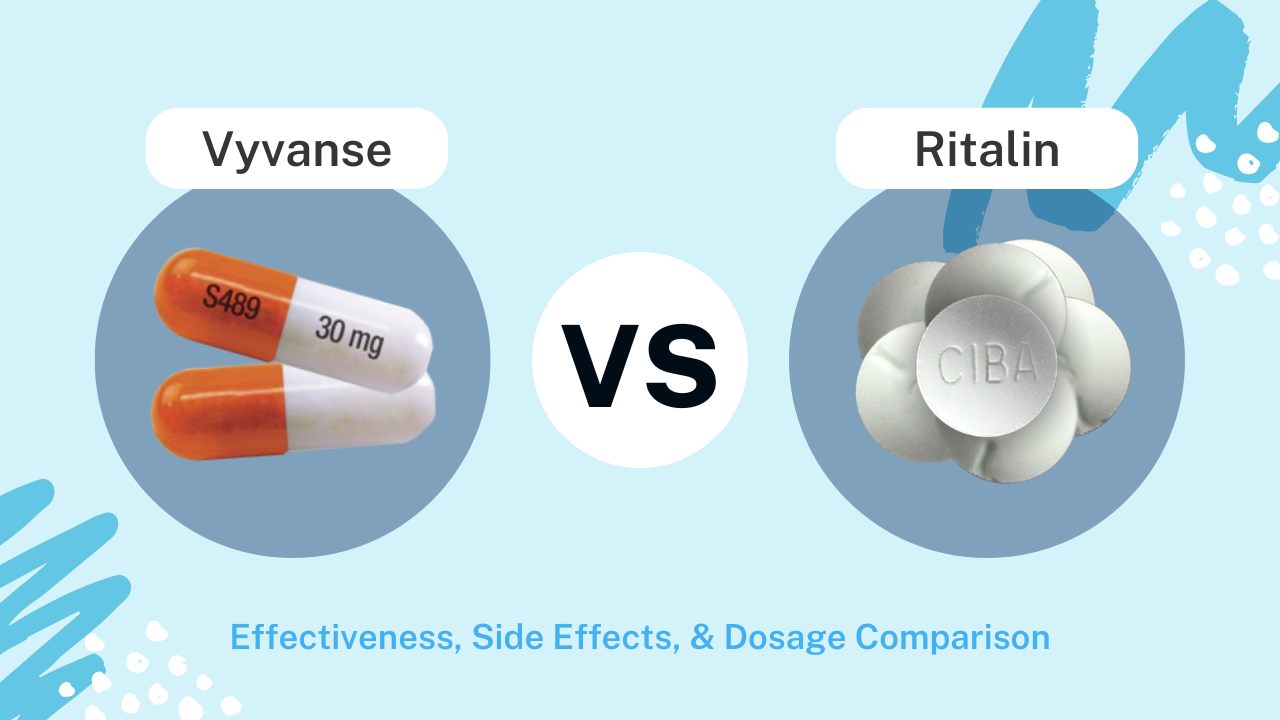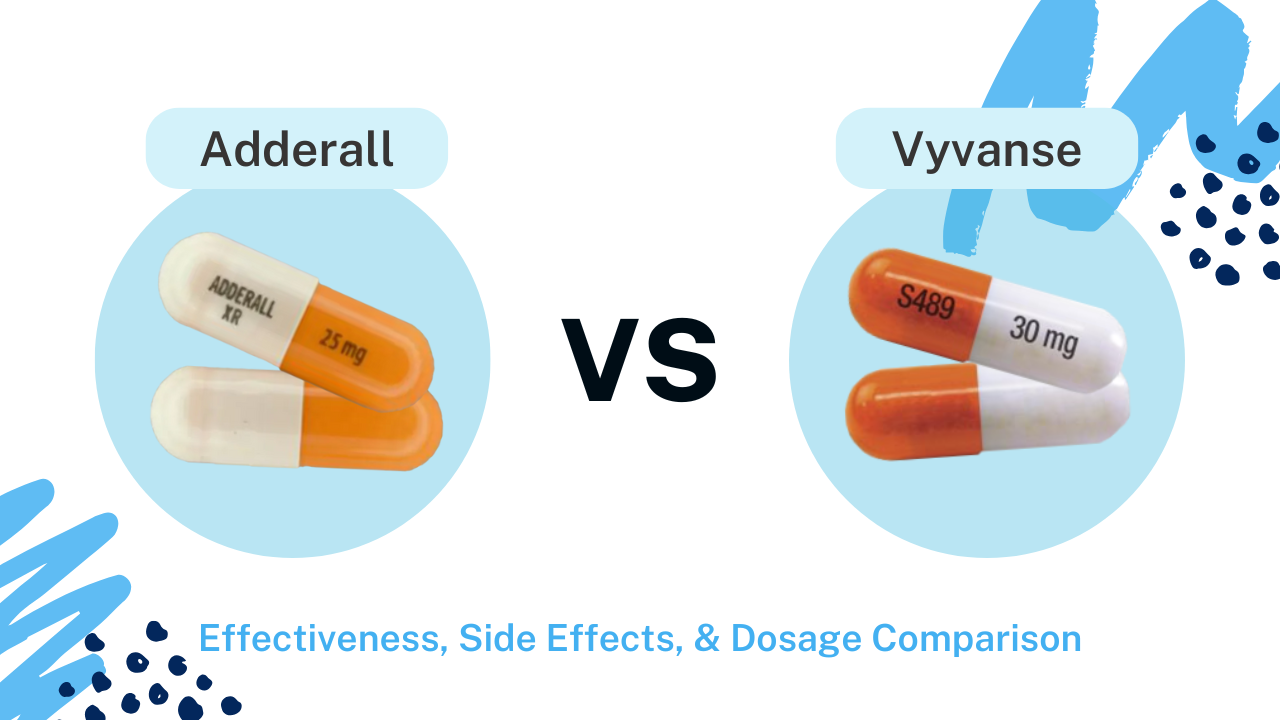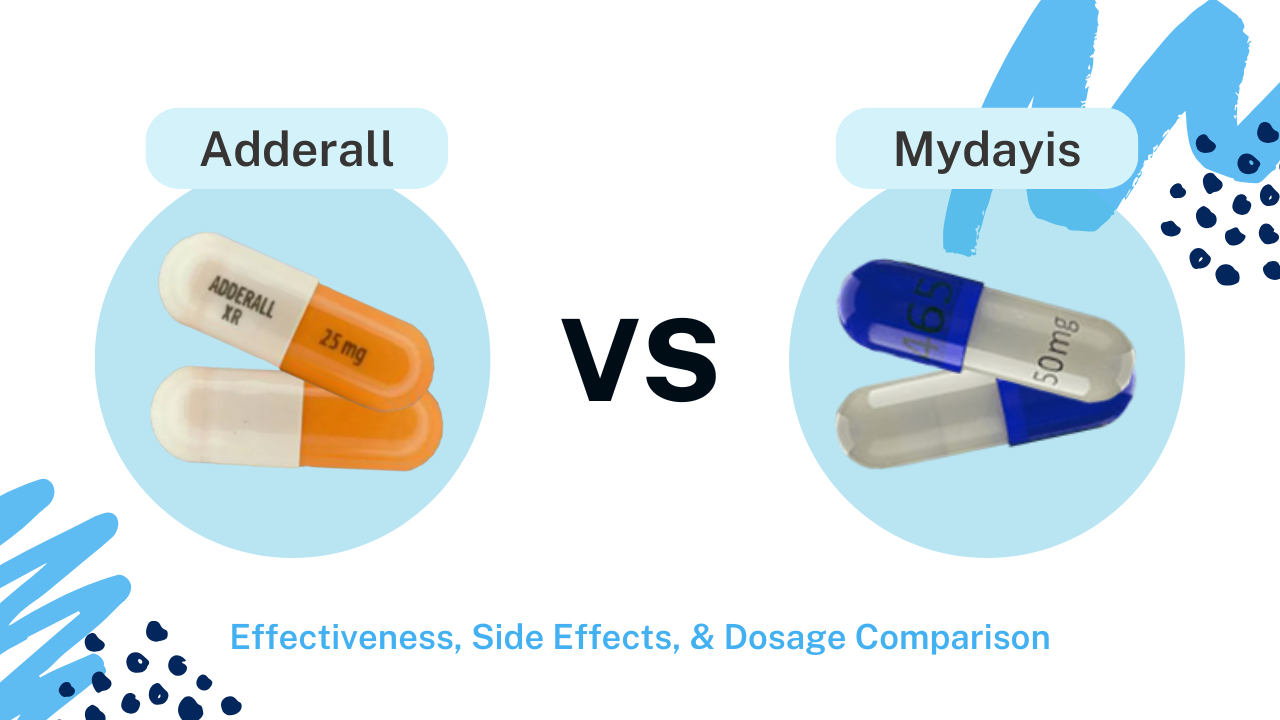Same Day Online ADHD Diagnosis
ADHD assessment?
For people living with the developmental disability Attention Deficit Hyperactivity Disorder, or ADHD, lack of productivity is one of the most commonly cited symptoms. And while finishing tasks or projects is a significant struggle itself, many individuals find the greatest hurdles come when attempting to begin a task. Often, these episodes of "stuckness" leave them feeling completely incapable of taking action. In formal terms, this is known as ADHD paralysis.
Different in many ways from typical procrastination, ADHD paralysis can stem from a number of sources, such as executive dysfunction, emotional dysregulation, or mental overload—each of which we'll outline and describe so you can better understand the source of this challenge. It can also be coupled with a multitude of co-occuring symptoms, such as ADHD stimming or even seemingly paradoxical ones such as hyperfixation.
While ADHD paralysis is complex, modern research has greatly expanded our understanding of this facet of the disorder. In this article, we'll work to share that understanding in a way that helps you build effective strategies to cope with bouts of paralysis, including how to recognize them when they happen, ways to proactively head them off, and ways that a trained therapist might be able to help.
Understanding ADHD Paralysis
ADHD paralysis is an umbrella term referring to episodes where a person with ADHD feels unable to initiate tasks or make decisions, no matter how much they want or need to do so. While there are many different types of ADHD paralysis, it's important to recognize that all of them differ from procrastination due to their roots in ADHD-related neurology and symptoms.
Due to the common misconception that people with ADHD (especially undiagnosed cases) are simply "lazy," individuals experiencing ADHD paralysis often have feelings of shame or frustration about not being able to make decisions or begin tasks.
Definition of ADHD Paralysis
While ADHD paralysis itself is not a clinical diagnosis, it's broadly recognized as an "inability to think or function effectively" when a person with ADHD is overwhelmed by their environment or a surplus of incoming information.
When these episodes happen, individuals experience a stark gap between what they intend to do and what they're able to do. No matter how much they want to do something, they simply cannot turn that desire into action.
Often, people describe this sensation as a type of "paralysis." In addition to causing significant frustration, these episodes can also impair a person's ability to meet deadlines, begin projects, or even make otherwise simple decisions in day-to-day life.
Again, it's crucial to recognize that, unlike neurotypical procrastination, ADHD paralysis is rooted in ADHD-related symptoms, such as impaired executive function or emotional distress. Because of these roots, ADHD paralysis must be approached with different methods than standard procrastination if progress is to be made.
Comparison with Procrastination
Although, on the surface, ADHD paralysis may seem similar to neurotypical procrastination, it has distinct causes and requires different treatment approaches. Generally speaking, procrastination experienced by neurotypical individuals is voluntary and fueled by a dislike of or aversion to certain tasks. In simpler terms, procrastination can be defined as a tendency to avoid or delay tasks you don't want to do.
Conversely, ADHD paralysis occurs when a person can't bring themself to begin a task no matter how much they do want to. This means that while a person may have the intent and motivation required to complete a task, ADHD-related barriers disrupt that person's ability to follow through.
Additionally, while neurotypical procrastination may involve prioritizing less important tasks over important ones due to personal preference, this is rarely true for ADHD paralysis. Instead, those dealing with ADHD paralysis may struggle to prioritize tasks at all, feel overwhelmed or frozen when confronted by very important tasks, or find themselves incapable of performing tasks they find under-stimulating.
What Causes ADHD Paralysis?
In humans, the prefrontal cortex is one of the most important parts of the brain and is largely responsible for managing our thoughts and emotions. Several studies have shown that ADHD may be related to a weaker prefrontal cortex, specifically in the right hemisphere of the brain, which plays a crucial role in behavior inhibition.
For ADHD paralysis, specifically, altered brain chemistry and stress can lead to difficulties regulating behavior or emotions, leading to different paralysis-related symptoms that stem from multiple factors related to ADHD neurology and psychology.
Neurological Factors
For many people living with ADHD, differences in brain structure and function can contribute to bouts of ADHD paralysis. These include:
Executive function deficits
One of the most commonly reported symptoms of ADHD in adults is impaired executive functions, such as working memory, behavioral inhibition, or cognitive flexibility.
Low dopamine
Low levels of dopamine are also common among individuals with ADHD. This symptom, especially when combined with impaired regulation of norepinephrine, can reduce a person's motivation and so-called "reward response."
Psychological Factors
There are two primary ways that psychological factors can cause or worsen ADHD paralysis, each with its own specific considerations and treatment methods. These are:
Emotional Dysregulation
Often, people with ADHD struggle to manage intense emotions like anxiety, stress, or frustration. When this type of struggle occurs, it can worsen other symptoms of the disorder, including ADHD paralysis. This, in turn, can cause even more negative emotions, resulting in a "thought loop" that leaves many people feeling trapped or helpless.
When trapped this way, the brain has less available bandwidth with which to address things like decisions or task initiation, potentially resulting in mental paralysis.
Negative Thoughts
Just like negative emotions can cause a feedback loop, negative or unhealthy thought patterns can also worsen ADHD paralysis. These patterns often include revisiting past "failures" or difficulties associated with a task or decision, which in turn serves to exaggerate or inflate present challenges.
As a person experiences more and more instances of these difficulties, these negative thought patterns become increasingly reinforced. Thankfully, proper ADHD treatment can help break these patterns and teach individuals to escape the loop when it occurs.
ADHD Paralysis Symptoms
Just like other ADHD symptoms, symptoms and behaviors related to ADHD paralysis can present differently depending on a person's circumstances. That said, some common manifestations include:
- Difficulty starting tasks you genuinely want to complete
- Putting off important projects
- Frequent lateness
- Missing deadlines despite wanting to meet them
- Feeling overwhelmed by a list of tasks
- Extreme difficulty making decisions when under stress
- Spending more time on less important tasks
- Seeking instant gratification to distract yourself
- Shifting impulsively between activities
- Constantly making lists that you fail to complete
Forms of ADHD Paralysis
For individuals with ADHD, paralysis may come in different forms with distinct triggers. Recognizing specific types can help pinpoint tailored management strategies.
Mental Paralysis
In ADHD, mental paralysis refers to an inability to think, process information, or solve problems when faced with high-stress situations or other triggers.
Definition and Characteristics
For reference, it's useful to compare mental paralysis to what most people would call a "mental block." Often experienced in situations where complex problem-solving or decision-making is required, mental paralysis can significantly and adversely impact your normal thought process. This experience often coincides with increasing frustration as the person attempts to work through the brain fog.
Common Triggers
Instances of high stress, either emotional or intellectual, can often trigger a bout of mental paralysis. These include scenarios such as:
- Public speaking
- Important tests
- Job interviews
- Financial decisions
- Conflict resolution
Choice Paralysis
For individuals with ADHD, choice paralysis (also known as analysis paralysis) refers to an inability to make a decision when faced with multiple options.
Definition and Characteristics
The specifics of choice paralysis vary between individuals but generally involves "freezing" in the face of overwhelming options. When this happens, individuals with ADHD often default to binary, black-and-white thinking: choices either feel completely wrong or completely right, with very little room for nuance.
Additionally, this type of ADHD paralysis may involve an unhealthy, unnecessary amount of analysis, with individuals overthinking to the point of not being able to make a decision at all.
Common Triggers
While some people report experiencing choice paralysis with more important decisions, these bouts can happen for everything from choosing where to go for dinner to deciding which college to attend. Common triggers of choice paralysis include:
- Exposure to too many options while shopping
- Choosing what to watch on television
- Picking between colleges or college majors
- Deciding between job applicants as a hiring manager
Task Paralysis
In ADHD, task paralysis refers to an inability to start or complete tasks, regardless of how much you want to do so. Perfectionism, fear of failure, and lack of motivation contribute.
Definition and Characteristics
Task paralysis occurs when you intend to complete a task but cannot overcome obstacles to get started or make progress. You may chronically put it off or end up staring blankly, unable to kickstart motivation.
Common Triggers
Task paralysis has perhaps the broadest list of triggers and causes, but several of these are more common than others. These include triggers such as:
- A need for perfectionism in certain tasks
- Intense fears of failure or poor performance
- Tasks that lack stimulation or engagement
- Feeling overwhelmed by the number of tasks ahead of you
Strategies to Overcome ADHD Paralysis
While the various presentations of ADHD paralysis are best treated through specific methods and professional guidance, there are some general methods you can use when attempting to "break free" from an episode of paralysis. These include:
- Breaking down large tasks or projects into smaller steps
- Setting timers for yourself
- Coming to terms with imperfections
- Deliberately practicing positive thinking and mindfulness
- Eliminating distractions from your workspace
- Planning rewards for meeting certain milestones
Expert Tip: When considering how to tackle the issue of ADHD paralysis, the approach may need to be multi-faceted by using a variety of strategies or interventions. The reason for this is that the issue itself is complex and stems from a combination of cognitive, emotional, and behavioral factors inherent to ADHD.
A multifaceted approach allows for tailoring strategies to suit an individual's unique challenges and strengths because what works for one person may be less effective for another. Also, ADHD challenges are interconnected; therefore, addressing one aspect alone might not resolve the broader issue of feeling paralyzed or stuck.
Real-Life Implications of ADHD Paralysis
Beyond its negative impact on overall mental health, ADHD paralysis has significant implications for many areas of life, from daily activities to your relationships and career.
Impact on Daily Life
Episodes of ADHD paralysis may interfere with everyday activities, including:
- Household chores, such as doing the dishes, folding laundry, or mowing the lawn
- Personal health habits, exercising, or medication management
- Basic errands or necessary to-do lists
Impact on Relationships and Career
More specifically, ADHD paralysis can also harm your career or relationships when left unmanaged.
- Partners may feel frustrated or betrayed due to unfulfilled promises
- Frequently canceling plans may damage friendships
- Missed deadlines or delayed workflow may reduce workplace performance
- Lower productivity may cause unemployment or career stagnation
Put simply, frequent, unaddressed bouts of ADHD paralysis can prevent people from living up to their full potential, either at work or in their private lives as friends, partners, or parents.
Overcoming ADHD Paralysis
There are several ways to manage ADHD paralysis, with the "right" option depending on each person's circumstances and needs. Like all ADHD, however, the greatest success often comes from a multi-faceted approach to treatment. Below, we'll outline some of the most effective ways to manage this disorder, but keep in mind that a combination of several methods may ultimately be best.
Professional Help
Whether it's traditional therapy, success coaching, or the right medications, seeking the help of a trained, certified professional is one of the best choices you can make when trying to better manage your ADHD. When choosing a therapist, coach, or ADHD service, however, there are things to look for to ensure you're getting the best care possible.
Scheduling Flexibility
Historically, one of the key barriers between individuals with ADHD and professional help has been access. In instances where a person has a busy schedule, has limited access to transportation, or lives in a remote area, finding an in-person therapist can be all but impossible.
With an online service such as ADHDAdvisor.org, you can remove these barriers altogether by meeting with a trained therapist or success coach from the comfort of your own home. An added benefit of this route is the greatly expanded number of options you have when choosing a therapist.
Holistic Diagnosis and Treatment
Getting the right online treatment plan for ADHD is an essential first step in your path to understanding your ADHD condition and managing your symptoms. Many of the best modern services focus on providing a well-rounded, holistic approach to your care. At ADHDAdvisor.org, for instance, we give you the freedom to choose between traditional therapy sessions, specialized success coaching, help with medication management, or any combination of the three.
By doing so, we're better equipped to ensure that you get exactly the support and guidance you need to achieve the greatest success possible.
Ongoing Support via Subscriptions
When you subscribe to regular treatment with ADHDAdvisor.org, you gain access to a committed, reliable team of professionals dedicated to helping you succeed. Whether that means convenient, regularly scheduled sessions, online ADHD test or impromptu messaging with your therapist when symptoms of ADHD paralysis flare, knowing you have a support system can create invaluable peace of mind.
Mindfulness and Relaxation Techniques
With the right practice and guidance, mindfulness techniques can play an important role in helping you manage many symptoms of ADHD, including paralysis.
Mindfulness to Alleviate Anxiety
Often, feelings of anxiety or stress can trigger bouts of ADHD paralysis. By taking the time to practice mindfulness or deep breathing in situations you know to cause these feelings, you may be able to refocus and prevent such bouts from happening.
Reducing Cognitive Overload
In many instances, ADHD paralysis can be prompted by information overload, when your senses are taking in more information or stimulus than you can handle. If this happens to you, incorporating deliberate relaxation techniques like yoga, calming music, or time in nature can give your mind a break from feeling overloaded.
Practical Strategies
When faced with stress, mental overload, or overwhelming emotions, there are times when straightforward, practical strategies can help you maintain focus and control.
Organization Solutions
The more organized you are in day-to-day life, the better equipped you'll be to handle bouts of ADHD paralysis when they happen. While this type of organization may be challenging for some people with ADHD, your therapist or coach can help you structure your life in achievable, realistic ways, such as:
- Creating consistent daily routines
- Eliminating clutter and distractions in your workspace
- Using planners or apps to track tasks and progress
- Setting milestones when working on multi-step projects
Time Management
Often, even the most basic time management skills can make a world of difference for those managing ADHD-related paralysis. Consider working to build the following habits:
- Set timers or alarms to signal task milestones
- Assign time limits when performing paralysis-prone tasks
- Alternate between highly stimulating and less-stimulating activities
Expert Tip: A strategy individuals may find helpful is the “Five Minute Rule”. This technique is helpful if an individual is feeling overwhelmed or paralyzed by starting a task. With this strategy you simply commit to working on it for just five minutes. Set a timer and focus solely on the task for that short duration. Often, getting started is the most challenging part. Once the five minutes are up, reassess how you feel. You might find that you've gained momentum and can continue working beyond the initial five minutes.Even if you don't feel like continuing after five minutes, you've made progress by starting.
Final Thoughts
Although ADHD paralysis may not be a technical diagnosis, it's still very much a reality for a vast number of people dealing with ADHD in their day-to-day lives. Whether it stems from impaired executive functioning, stimulus overload, or emotional issues, finding the right support and guidance can mean the difference between ongoing struggles and genuine success.
The key to this kind of success, however, is partnering with capable, passionate professionals whose expertise and approach to treatment match your specific needs. Over time, you can work with your therapist, success coach, or both to build effective, reliable methods to protect yourself from ADHD paralysis and its effects on your life.
If you're ready to reach out and start taking control of your ADHD symptoms, consider taking our ADHD symptom quiz. Or, for those who have already received a online ADHD diagnosis, our team of matching specialists is waiting to find you the perfect therapist or success coach for your needs.























